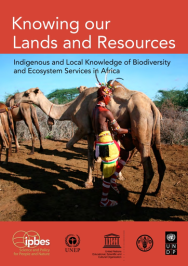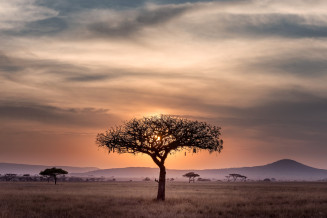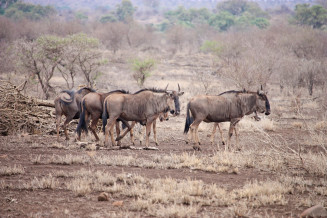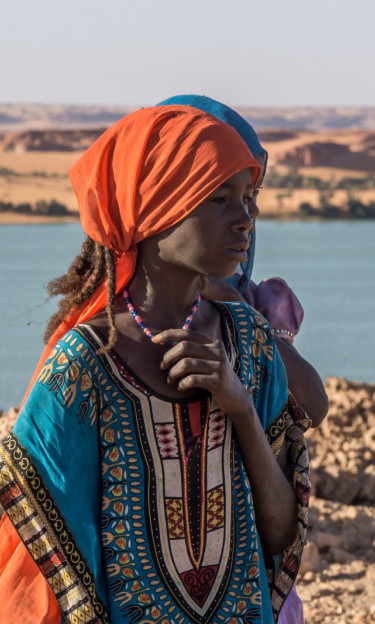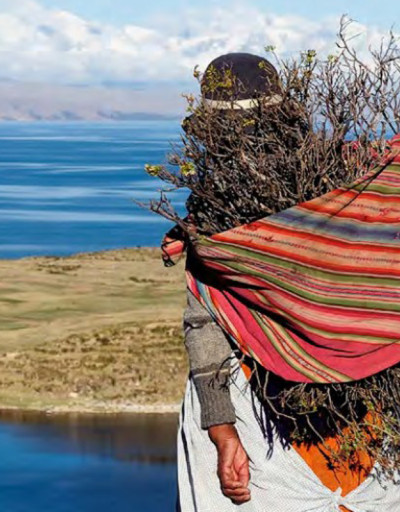
Africa
Pastoralists & Climate Adaptation
Pastoralists hold very detailed knowledge of natural phenomena which allow them to understand and systematise information about seasonal changes and vital information about rainfall, grazing and drinking water for humans and livestock.
Pastoralists are observing rapid changes to historical variations in the weather, in the seasons, and the biological and social effects of such changes. UNESCO-LINKS has been supporting climate research led by indigenous African pastoralists through its project Knowing our Changing Climate in Africa. This research suggests that pastoralist weather forecasting at certain scales may be more accurate than existing scientific capacity, and that pastoralist knowledge of weather and climate, and the impacts of their changes is crucial for national adaptation.
Project: Knowing our Changing Climate in Africa
The project was based on a methodological process involving six years of research into indigenous weather and climate knowledge, conducted by indigenous researchers and communities in Burkina Faso, Chad, Ethiopia, Kenya, Tanzania and Uganda. This research involved engaging with various knowledge holders in pastoralist communities to gain an understanding of how they interpret weather phenomena and how they make decisions about transhumance and livestock rearing in light of the indicators available to them.
Exchanges between pastoralists and scientific experts took place, with research results being presented at international conferences, regional forecasting exercises and dialogues with IPCC authors and World Meteorological Organisation experts. Furthermore, the results were shared with government decision-makers and recognised as contributing to the UNFCCC Local Communities and Indigenous Peoples Platform's rolling work plan.
To facilitate knowledge exchange between indigenous and scientific disciplines, UNESCO collaborated with the World Meteorological Organisation and the Global Framework for Climate Services to create an interface platform knowledge systems exchanges on weather and climate.
Policy brief (2018)
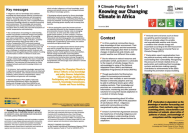
Project results
Supported by the Swedish International Development Cooperation Agency and the Japanese Funds-in-Trust, UNESCO LINKS produced a range of outputs, including conference proceedings, reports, policy briefs, and a detailed case study by the Association des femmes peules autochtones du Tchad (AFPAT) on their experience of research, transdisciplinary cooperation and policy advocacy.
A complementary short term initiative was launched by the Living Heritage Entity of the UNESCO Culture Sector in 2021, covering a wide range of communities and knowledge holders, in relation to their intangible cultural heritage and practices.
Key findings

Pastoralists use thousands of indicators to predict weather & climate shifts.

Makes tacit knowledge explicit, changes appreciation by all, including decision-makers.

the research aided dialogue within communities on positive gender navigation under changing dynamics.

Pastoralists have detailed knowledge of weather, climate change and micro-climates.

when researchers publish/co-publish: protecting knowledge, attending to collective indigenous peoples rights.

Indigenous knowledge systems are complex, yet none are informing curriculum development.
Biodiversity and Ecosystems
In 2020, UNESCO-LINKS joined the Biodiversity and Ecosystem Services Network (BES-Net) initiative, co-implemented with the United Nations Development Programme (UNDP) and the UN Environment Programme World Conservation Monitoring Centre (UNEP-WCMC), that aims to build capacity and commitment for biodiversity action across the world by translating the latest Intergovernmental Science-Policy Platform on Biodiversity and Ecosystem Services (IPBES) products into action on ground. UNESCO-LINKS leads the BES-Net Indigenous and local knowledge (ILK) Support Unit. UNESCO-LINKS is supporting Malawi and Botswana to incorporate Indigenous and local knowledge in their national ecosystem assessment, as well as Kenya and Nigeria in the uptake of Indigenous and local knowledge key messages and recommendations from IPBES thematic assessments.
